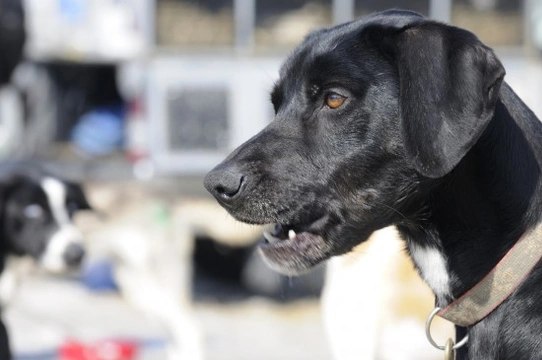
Why might a dog become aggressive with its owner?
A well-treated, well socialised dog that has always been loved and cared for from the time that they were a puppy is highly unlikely to develop aggressive traits later in life for no good reason, and if this does happen, it can prove both worrying and disconcerting for their owners. As well as the obvious dangers that accompany aggressive behaviour in the dog, aggression can be concerning as it indicates a change in your dog that may have another serious underlying cause, which you will need to address in order to resolve the issue.
In this article, we will look at some of the most common reasons behind why a dog might suddenly begin to behave aggressively with their owner, plus what you can do to resolve it. Read on to learn more!
Fear aggression
A lot of the time, a dog that displays out of character aggression is actually afraid and behaving defensively rather than being outright aggressive, although this is not always obvious when you are on the receiving end of it! Fear aggression can occur if your dog misunderstands or misinterprets something that you are doing as an aggressive or threatening behaviour, and responds in kind accordingly. This can be something as simple as rough and tumble play with the kids, or shouting at the TV during a football match!
Simple things that may seem harmless and innocuous to you may potentially be read differently by your dog, who might not understand what is really going on!
Sometimes, this fear aggression response is down to a simple misunderstanding between dog and owner, but it is important to try to suss out whether there might be a root cause for the behaviour, such as if your dog has previously been hurt or frightened in similar situations, and is recalling this when they react.
Resource guarding
Resource guarding is the name given to the canine behaviour where dogs will fiercely protect the things that they see as theirs, such as their food, toys or beds. While most dogs guard their resources to some extent, this behaviour should not come accompanied by aggression or bad behaviour, and it should be possible to remove any item from your dog if needs be without it turning into a fight.
If your dog feels insecure or as if they do not have their own space and their own things, or if they are afraid that they will not get enough to eat unless they defend their food, this can trigger resource guarding aggression, which is a problem you need to address. You need to be able to both enable your dog to feel safe and secure about their things, and that no one is trying to deprive them of anything, while also ensuring that your dog does not act out or become aggressive if you do need to take something off them sometimes.
Alpha dominance
Within the household there should be a clear but functional pecking order, with the people at the top of the pile and the dog further down. This is necessary to ensure that your dog is obedient and well trained, and to maintain the status quo of the household.
If your dog considers themselves to be the boss dog or alpha, this can lead to dominant behaviour and potential aggression when your dog does not get his own way! This kind of behaviour often develops gradually over time, as you slowly begin to let things slip within the home without realising!
If your dog is pushy, demanding, unruly or grumpy when you ask them to do something, you will need to look at retraining them to reinforce your place at the top of the pile, and to curb their bad behaviour.
Health issues
One common underlying cause of sudden out of character aggression in the dog can be the presence of an injury or underlying illness, as we all know that not feeling 100% can soon make us feel grumpy! Imagine if you were suffering from a bad headache and someone kept talking to you, pushing you to play or trying to get you to do something that made you feel worse; even if you love the person in question, you are likely to be very reticent and possibly grumpy about it!
The same is true for your dog, so it is vitally important to get them checked out by your vet if they suddenly begin to behave differently for no obvious reason.
Poor socialisation
Socialisation with both people and other dogs is something that all dogs need plenty of, both when they are puppies and throughout their lives. If your dog is not adequately socialised and has not really learnt how to read and react to people in a whole range of situations, this can lead to confusion, a lack of understanding, and in some cases, aggression. Ensure that your dog is well socialised and that you continue to socialise them throughout their lives, and work on this if your dog appears to have gaps in their knowledge and understanding of interaction with others.



